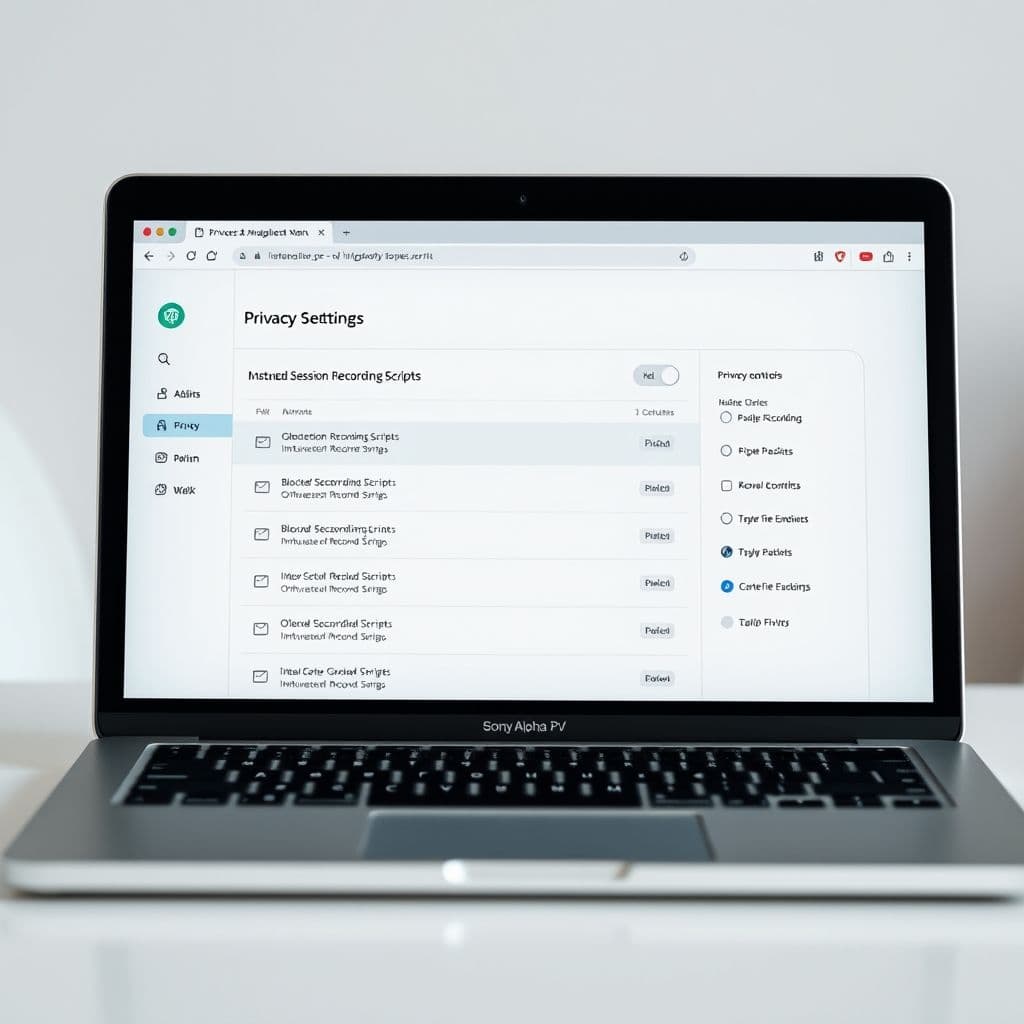Session Recording Exposed: The Hidden Privacy Risks and a Potential SaaS Solution

Have you ever typed something into a website and then changed your mind, deleting it before hitting submit? You might think your data is safe, but in reality, it could have already been captured. Session recording is a widespread practice that tracks every move you make online, from mouse movements to keystrokes—even those you erase. This article delves into the privacy risks of session recording and explores a hypothetical SaaS solution to protect your data.
The Problem: How Session Recording Invades Your Privacy
Session recording is like a silent observer, capturing every interaction you have with a website or app. Whether you’re typing a password, filling out a form, or simply hovering over a button, these actions are recorded and stored. Many users are unaware of this practice, assuming their data is only sent when they hit 'submit.' However, the moment you type, your information can be logged—even if you never intended to share it.
The privacy implications are staggering. Websites and apps use session recording to 'improve user experience,' but this often comes at the cost of user consent and transparency. Comments from concerned users highlight frustrations like, 'How is this legal?' and 'Should be illegal to collect any type of data including session recording.' The lack of control over personal data is a growing concern in an era where digital privacy is increasingly under threat.

A Hypothetical SaaS Solution: Blocking Session Recording
Imagine a browser extension that acts as a shield against session recording scripts. This hypothetical SaaS tool would identify and block tracking scripts in real time, giving users back control over their data. The extension could also provide a transparent dashboard showing which websites attempt to record sessions, what data they collect, and how to adjust privacy settings for each site.
Key features of this idea could include: 1) Real-time detection of session recording scripts, 2) Customizable blocking rules for specific websites, 3) A user-friendly dashboard displaying data collection attempts, and 4) Educational resources on digital privacy. By empowering users with knowledge and tools, this solution could address the growing demand for privacy-focused browsing.

Potential Use Cases and Benefits
This tool could benefit a wide range of users, from casual browsers to privacy-conscious professionals. For example, remote workers handling sensitive information could ensure their data isn’t inadvertently recorded. E-commerce shoppers could avoid having their payment details logged before completing a purchase. Even everyday social media users could browse without worrying about their every click being tracked.
The broader impact of such a solution could extend beyond individual users. By raising awareness and providing tools to combat invasive tracking, this SaaS idea could pressure websites to adopt more transparent data practices. As one commenter noted, 'We give way too much power to random web developers.' This tool could help shift that balance back toward users.
Conclusion
Session recording is a pervasive yet often invisible threat to digital privacy. While it’s marketed as a way to improve user experience, the lack of transparency and control leaves many feeling vulnerable. A browser extension designed to block these tracking scripts could empower users to take back their privacy. Until such a solution exists, the best defense is awareness—knowing that your every move online might be watched.
Frequently Asked Questions
- Is session recording legal?
- The legality varies by region. In the EU, GDPR imposes strict rules on data collection, but enforcement can be inconsistent. Many users are surprised to learn how widespread session recording is, despite privacy concerns.
- How can I protect myself from session recording?
- Currently, options are limited. Some ad blockers may stop certain tracking scripts, but a dedicated solution like the hypothetical SaaS extension described here would offer more comprehensive protection.
- Why do websites use session recording?
- Companies claim it helps improve user experience by identifying pain points in navigation or form completion. However, the practice often lacks transparency and user consent, raising ethical questions.


